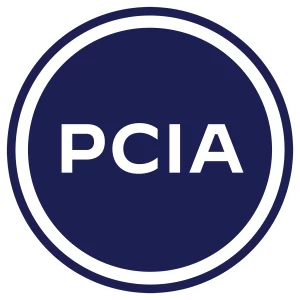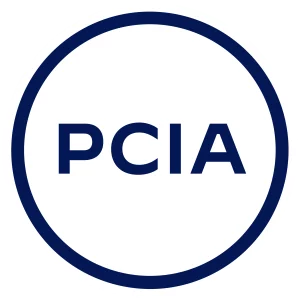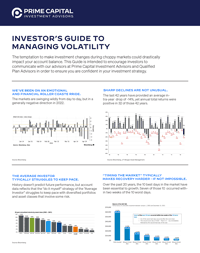The Federal Reserve raised interest rates by a quarter-percentage point on July 26, lifting interest rates to their highest level in 22 years and impacting economic activity for the short and long term. According to Investopedia, “The Federal Reserve influences the federal funds rate in order to control inflation. By increasing the federal funds rate, the Federal Reserve is effectively attempting to shrink the supply of money available for making purchases. This, in turn, makes money more expensive to obtain.”
Here are six main ways to fight inflation in retirement.
Let’s dive into some particulars about inflation that you should know about, as well as some potential actions you can take to combat inflation’s effects. The goal is for your retirement assets to remain intact up to and throughout retirement.
What is inflation?
Inflation measures the increase in the cost of goods and services over time. While moderate inflation is a fairly normal mark of a healthy economy, the limitations on American consumers’ spending power begins to present a problem if inflation rises faster than your income and investment returns do.
Inflation is considered a risk in retirement because your hard-earned dollars that you saved over the years may not stretch as far later, leaving you with less money than you thought to cover your necessities and other purchases in retirement.
6 Things You Can Do to Help Combat Inflation
1) Diversify
Diversifying your investments can help because some investments might be more affected by inflation than others. Remember that higher interest rates make financing your home, car and credit card purchases pricier, but they can mean higher returns for savers. For instance, interest rates on CDs (certificates of deposit) are above 5% right now.
But it’s important to consider recalibrating all your investments. You can take advantage of other options and asset classes to grow your money for retirement beyond traditional bank accounts, equities (i.e., stocks), and fixed income (i.e. bonds). Depending on the way you structure your portfolio, you may potentially outperform inflation and produce better returns which can help you protect the value of your retirement savings.
2) Contribute More
Maximizing contributions to your retirement accounts like 401(k)s and IRAs can keep your retirement funds growing, which may afford you a better opportunity to get ahead of inflation. People with a saver mindset can benefit substantially by maximizing contributions to their workplace retirement plans. This can make a big difference in the long run, particularly in an economic environment like this. The maximum 401(k) contribution for 2023 is $22,500, and for those 50 and older, the catch-up contribution of an extra $7,500 allows you to stash away up to $30,000 this year.
3) Budget
Budgeting wisely for retirement is crucial, and developing a retirement budget that takes prospective inflation into consideration is a must. Be realistic about your projected costs and take rising prices for necessities like healthcare, housing, and everyday living costs into account. You’ll be more equipped to modify your spending patterns and make critical financial decisions as inflationary pressures develop if you keep your future budget firmly in mind.
4) Review
Review and make revisions to your existing retirement plan on an ongoing basis. The effects of inflation ebb and flow. It’s critical to periodically assess your retirement strategy and make any necessary modifications.
5) Consider Taxes
Develop a plan to combat taxes in retirement, earlier rather than later. Utilizing tax mitigation strategies such as Roth conversions may be advisable over a period of years depending on your individual situation. Taxes and tax law are subject to change, and it’s important to utilize a team of professionals to help you save money on taxes now. Those tax professionals can also help you look ahead to uncover tactics that can mitigate future taxes.
The critical 5-10 years prior to your desired retirement date can allow you to: a) Consider what your income tax return will show prior to filing for Medicare at age 65 (people with higher incomes pay higher Medicare premiums for life and Medicare uses your most recent return filed with the IRS at the time that you file), b) Figure out the best age for you and your spouse to file for Social Security (allowed at age 62, but benefits increase by waiting up to age 70), and c) Create a strategy to address income taxes when you withdraw taxable money held in traditional 401(k)s, IRAs or similar accounts.
Starting at age 73, the rules are strict about mandatory withdrawals called RMDs (required minimum distributions) from traditional 401(k)s, 403(b)s, 457s, TSPs, IRAs and similar accounts. High withdrawals (which require you to pay higher ordinary income taxes) can throw you into higher tax brackets than you thought—in fact, up to 85% of your Social Security benefit can even be taxed depending on your combined income calculation.
6) Seek Advice
Seek out the wisdom of a financial professional, especially an advisor who specializes in retirement. Working with an experienced financial advisor can help you evaluate your current plan, strategies, budget, and investment allocations, assisting you in clarifying and running projections on what works and what may not work in your plan, including the impact of inflation and taxes.
081623008 MAH
This article is provided for general information only and is not to be construed as financial or tax advice. It is recommended that you work with your financial advisor, tax professional and/or attorneys when tax planning.
Advisory products and services offered by Investment Adviser Representatives through Prime Capital Investment Advisors, LLC (“PCIA”), a federally registered investment adviser. PCIA: 6201 College Blvd. Suite #150, Overland Park, KS 66211. PCIA doing business as Prime Capital Wealth Management (“PCWM”) and Qualified Plan Advisors (“QPA”).





